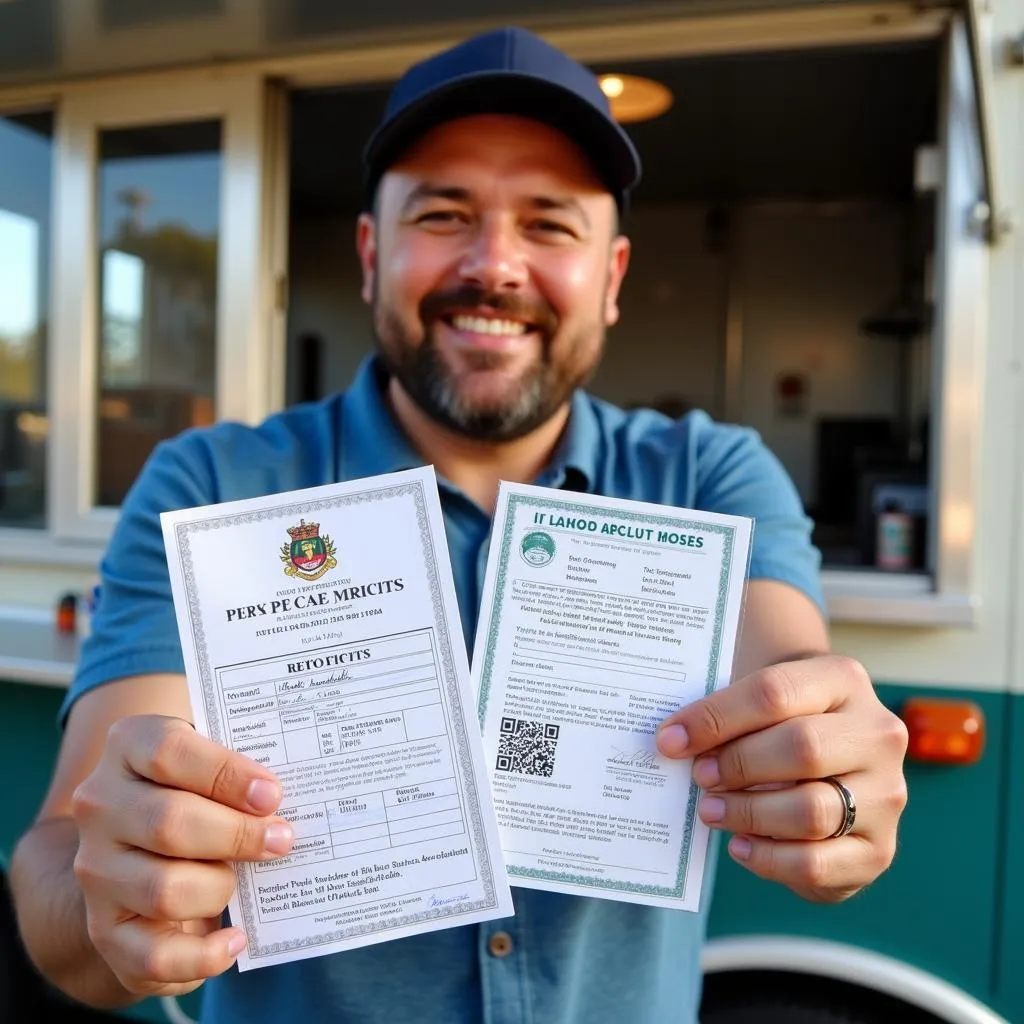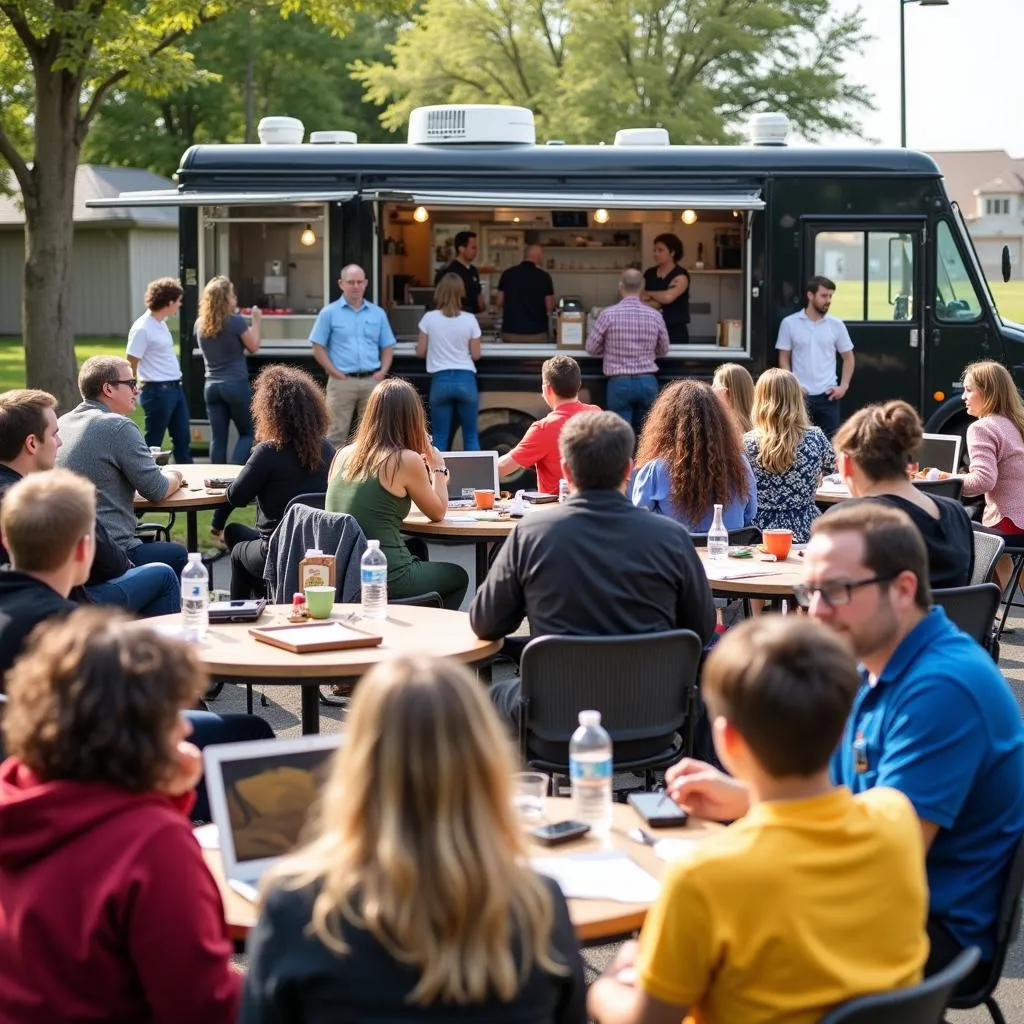The allure of the open road, the sizzle of the grill, the aroma of culinary creativity wafting through the air – food trucks represent a modern entrepreneurial spirit and a dynamic dining experience. However, before you fire up your engines and embark on your food truck adventure, it’s crucial to understand the regulatory landscape, particularly the intricacies of the Food Truck Ordinance that governs your chosen location.
What is a Food Truck Ordinance?
A food truck ordinance is a set of local laws and regulations specifically designed to govern the operation of food trucks within a particular city, county, or municipality. These ordinances vary significantly from one location to another, reflecting the unique needs and concerns of each community. They address a wide range of issues, ensuring public safety, fair competition, and a harmonious balance between these mobile culinary entrepreneurs and the communities they serve.
Key Components of a Food Truck Ordinance
While specific regulations vary, most food truck ordinances encompass the following key aspects:
-
Licensing and Permitting: Obtaining the necessary licenses and permits is paramount. This typically involves undergoing inspections to ensure compliance with health and safety standards.
-
Operating Hours and Locations: Ordinances often dictate where and when food trucks can operate, limiting them to specific zones or timeframes.
-
Parking Restrictions: Rules regarding proximity to fire hydrants, crosswalks, and other businesses are common, ensuring public safety and traffic flow.
-
Waste Disposal: Proper waste disposal is crucial. Ordinances may require designated waste receptacles and adherence to specific disposal procedures.
-
Noise Levels: To minimize disruption, limits on noise levels from generators or music are often enforced.
 Food Truck Ordinance Compliance
Food Truck Ordinance Compliance
Decoding the Details: Understanding Your Local Ordinance
Navigating the intricacies of food truck ordinances can be complex. Here’s a step-by-step guide to help you decipher the regulations in your area:
-
Identify the Governing Authority: Determine whether your city, county, or town has jurisdiction over food truck operations in your desired location.
-
Access the Ordinance: Visit the website of the relevant government entity or contact the clerk’s office to obtain a copy of the food truck ordinance.
-
Seek Professional Guidance: Consult with a lawyer or business advisor specializing in food service regulations to ensure you fully understand the requirements.
 Researching Food Truck Ordinances
Researching Food Truck Ordinances
The Importance of Compliance
Adhering to food truck ordinances is not merely a legal obligation; it’s essential for building a sustainable and successful business:
-
Avoiding Penalties: Non-compliance can lead to hefty fines, license revocations, or even legal action.
-
Maintaining a Positive Reputation: Following the rules fosters a positive image within the community and among customers.
-
Ensuring Public Safety: Compliance with health and safety regulations safeguards both your patrons and your business.
Food Truck Ordinances: A Catalyst for Growth
While navigating the regulatory landscape may seem daunting, food truck ordinances provide a framework for success. These regulations are not intended to stifle entrepreneurship but to foster a vibrant and well-regulated mobile food industry. By understanding and adhering to the rules, food truck owners can focus on what they do best: serving up delicious food and creating memorable culinary experiences.
“Food truck ordinances are all about finding a balance,” says Emily Chen, a food truck consultant and owner of “Curbside Bites.” “They protect the public, support fair competition, and provide a clear roadmap for success for mobile food vendors.”
FAQs about Food Truck Ordinances
1. Do I need a separate license for each location I operate in?
Possibly. Some jurisdictions require separate permits for each location, while others offer broader licenses.
2. Can I sell alcohol from my food truck?
Alcohol sales are often subject to additional permits and regulations, which vary significantly by location.
3. What happens if I violate a provision of the ordinance?
Penalties can range from warnings to fines, temporary closures, or even license revocations.
 Understanding Food Truck Ordinances
Understanding Food Truck Ordinances
Need More Information?
For more insights on navigating the world of food trucks, explore these related topics:
Understanding and complying with your local food truck ordinance is not just a legal necessity but a recipe for success in the dynamic world of mobile culinary entrepreneurship. Take the time to research, seek guidance, and ensure your business is operating within the bounds of the law. Remember, a well-informed food truck owner is a successful food truck owner!
For any assistance or guidance, feel free to contact us. Our team at Mina Cones Food is dedicated to supporting your culinary journey. Reach us at: Phone Number: 02437655121, Email: [email protected]. We are available 24/7. You can also visit us at our office located at 3PGH+8R9, ĐT70A, thôn Trung, Bắc Từ Liêm, Hà Nội, Việt Nam.